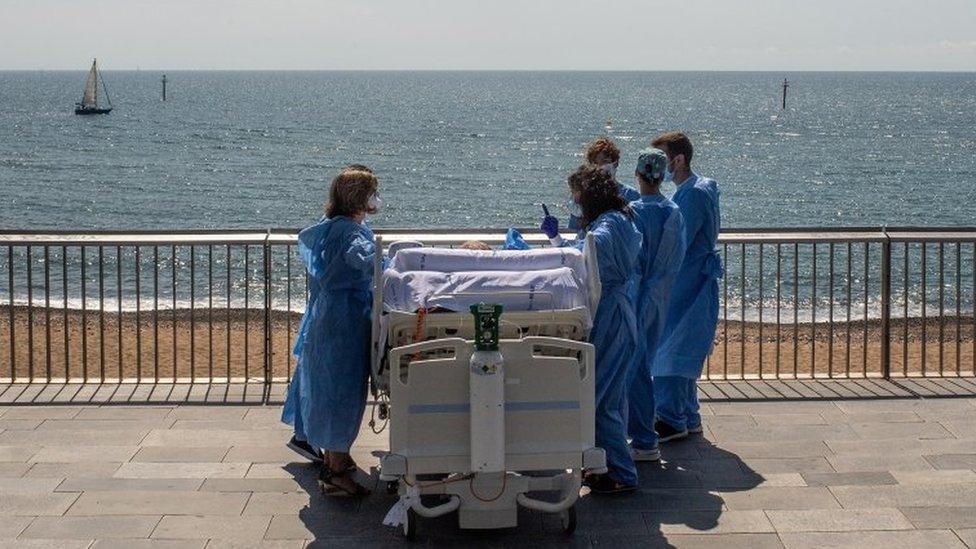Coronavirus: Catalonia makes masks mandatory in public
- Published
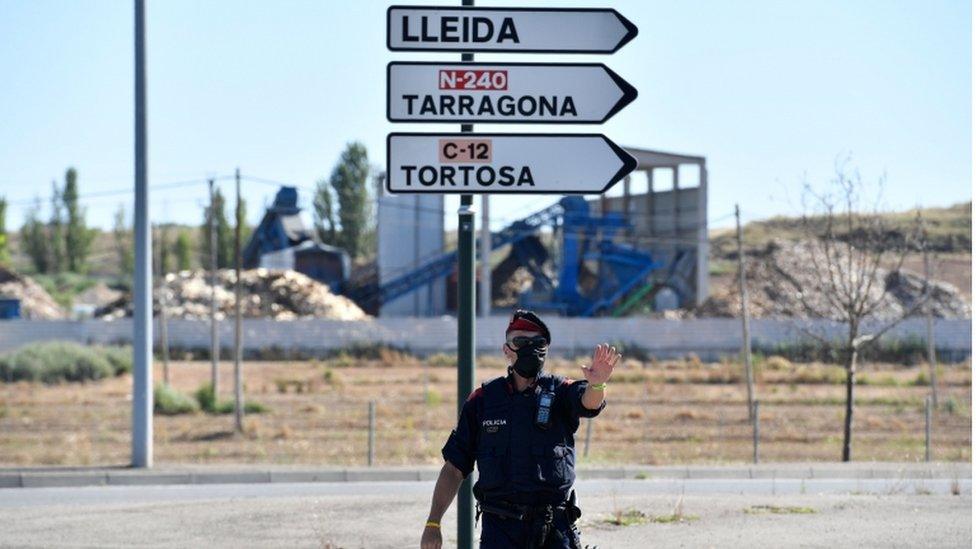
Authorities have already imposed a lockdown on Lleida, banning people from leaving or entering
Spain's autonomous region of Catalonia has made face masks mandatory in public for all those aged over five after a surge in new cases of coronavirus.
Anyone caught without a mask - even when social distancing can be observed - faces a €100 ($113; £90) fine.
It comes amid an outbreak of the virus in Segrià, an agricultural area.
Officials already imposed a lockdown on 210,000 residents on Saturday, banning anyone from entering or leaving except for work.
While the national situation is largely under control, Spain has been hit hard by the virus. As of Wednesday the health ministry said, external the country had recorded 252,513 cases and 28,396 deaths.
Spain's northwestern region of Galicia imposed a local lockdown around the coastal district of A Mariña following a fresh outbreak earlier this month.
And in June the region of Aragon, which borders Catalonia, re-imposed restrictions on several areas after an outbreak among fruit pickers in its Huesca province.
What are the new face mask rules?
"The general rule is that everyone will leave their house with their face mask on, whether they are going to the beach or to the office," Catalan health chief Alba Vergés told reporters on Wednesday.
Exceptions will be made, such as when a mask is "not compatible" with an activity like exercise but as a whole those older than five must always wear a face covering outside their home, she said.
Even where people can observe the recommended physical distance of 1.5 metres (5ft) people will still be required to wear a mask throughout the entire region.
Coronavirus: 'The masks you throw away could end up killing a whale'
In May Spain made face masks compulsory for everyone over five years in public, unless they could observe social distancing.
Other areas have made the rules stricter. Basque country authorities made face coverings compulsory regardless of social distancing around the city of Ordizia, where there is another local outbreak.
And the government of the Balearic Islands also plans to make face masks in public compulsory even when physical distancing is possible, starting on Monday. People will not have to wear coverings on beaches or while playing sports, however.
What's happening in Segrià?
Pere Godoy, the chief epidemiologist for Lleida, a city in the region, has cited the arrival of 30,000 seasonal fruit pickers for the rise in cases.
Outbreaks are currently being monitored at 11 fruit companies in the area, which as yet have not been closed.
This is the worst localised outbreak in Spain, with more than 500 confirmed cases. In the first week of July, there were reportedly 175 cases per 100,000 inhabitants, external.


Hospitals are calling for specialists to help them treat the rising numbers of infected. Authorities said half the people currently being admitted to intensive care near Lleida were under 40 years old.
Dr Oriol Yuguero at Lleida's Arnau de Vilanova hospital told broadcaster 20 Minutos this would be a "decisive" week to see how the outbreak spreads in Segrià.
"In March we did not know what would happen," he said. "Now we know that in a week it may collapse, and the hospital has been preparing so that it won't be a problem."

DEATH RATE MYSTERY Japan's low virus death rate
SUPERSPREADER EVENTS What makes a gathering a ‘superspreader’ event?
WAITING FOR THE TOURISTS Voices from Spain's Costa del Sol
GLOBAL SPREAD: Tracking the pandemic

- Published4 July 2020
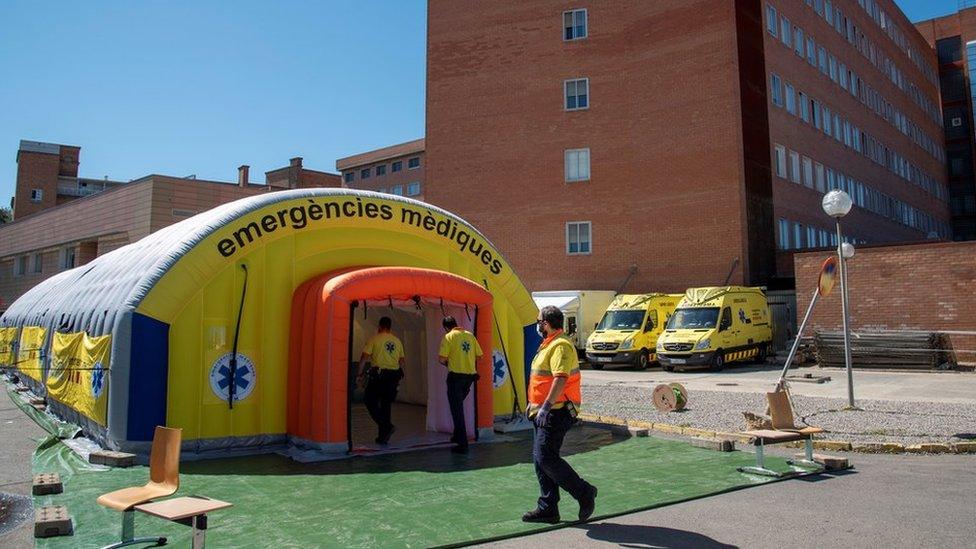
- Published7 July 2020
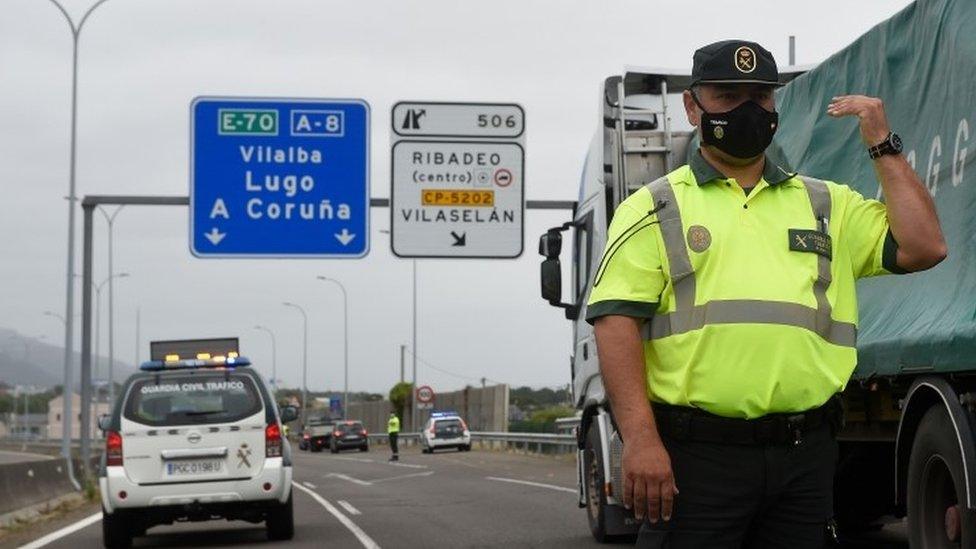
- Published5 July 2020
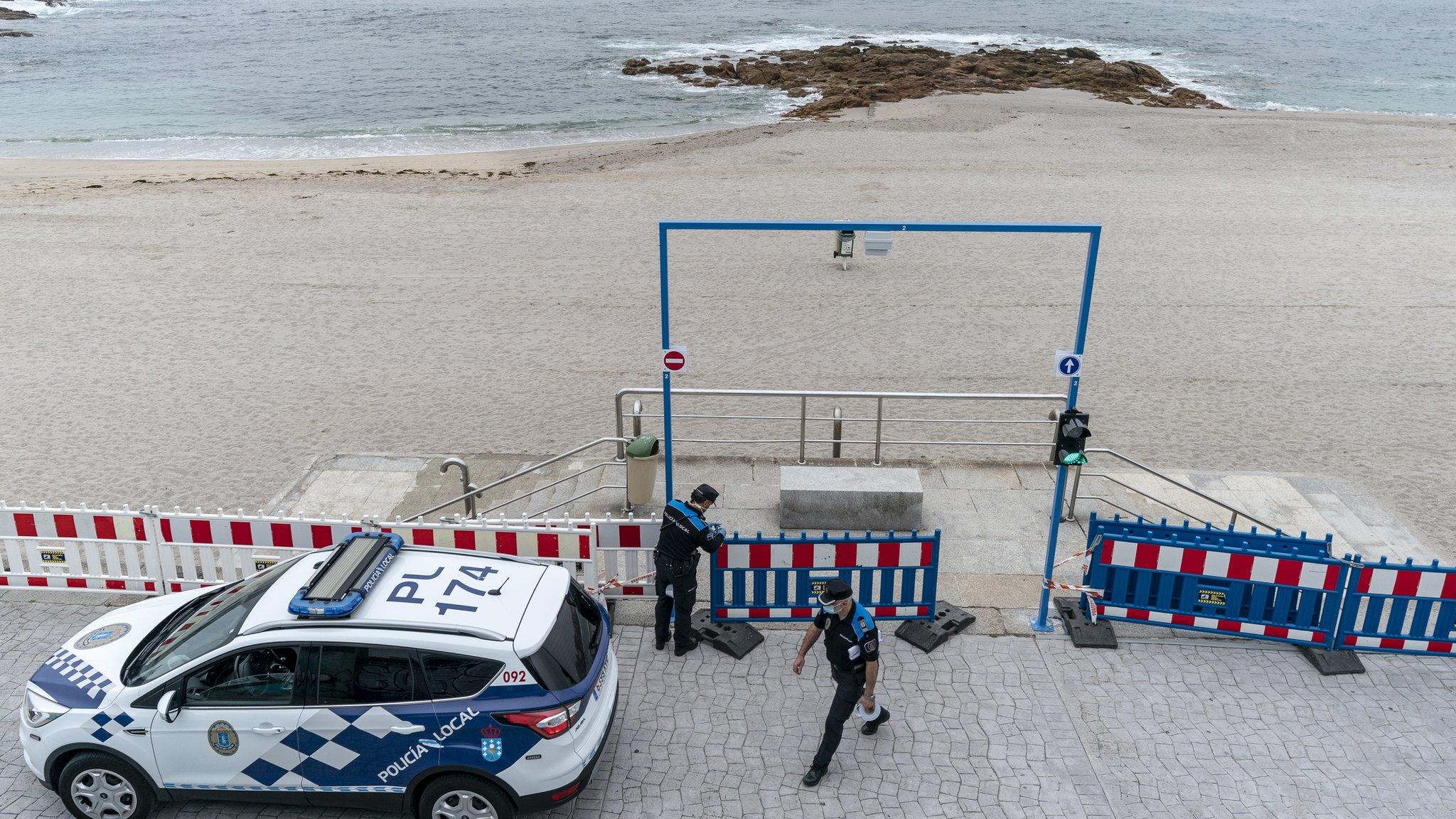
- Published3 June 2020
